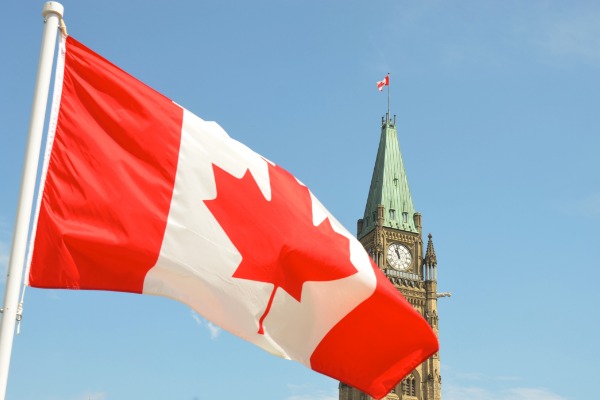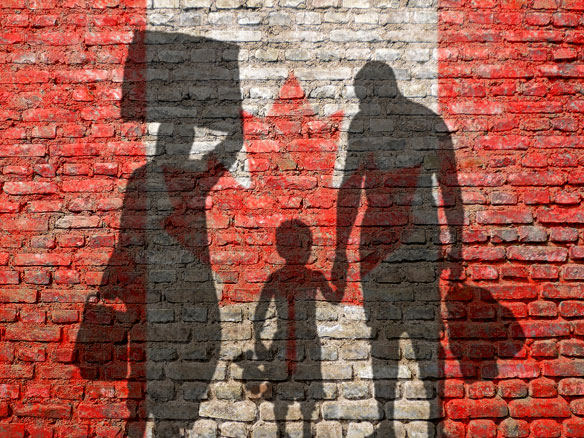Budget 2021: Industry Welcomes Support But More Will Be Needed

For the travel trade, let’s call the first federal budget in two years a further reprieve.
The industry asked for the extension of a number of key support programs like the wage and rent subsidy and the lockdown support programs and all of them are being extended until Sept. 25, 2021.
However, the budget papers state that the government will “gradually decrease the subsidy rate, beginning July 4, 2021, in order to ensure an orderly phase-out of the program as vaccinations are completed and the economy reopens.”
Not surprisingly, ACTA’s initial response indicated that it was ‘pleased’ with the support through to the end of September, but that it anticipated “that the industry will need extended support through to the end of the year — or until restrictions on travel are lifted.”
Pointing to its recent survey of more than 1,000 travel agents that indicated that 75% of them wouldn’t survive “without continued aid until the end of the year,” ACTA said it will be taking time to review the 724-page document “to understand changes to the government programs noting initial concerns with the decline in the maximum base and top-up levels beginning in July.”

The association noted that “another important piece of information to understand in ACTA’s next steps is that Budget 2021 also proposes to provide the government with the legislative authority to add additional qualifying periods for the wage subsidy, the rent subsidy and the Lockdown Support until Nov. 20, 2021, should the economic and public health situation warrant it.”
One initiative of note designed to help the hardest-hit businesses pivot back to growth, is a new Canada Recovery Hiring Program which will run from June to November and will provide $595 million to make it easier for businesses to hire back laid-off workers or to bring on new ones.
The Big Win For All Of Us
After decades of talk, talk, talk, Budget 2021 sees the federal government commit to a nation-wide Early Learning and Child Care System.
With women having always filled a significant number of the roles in travel and tourism, the access to high quality, economical childcare is without a doubt a game changer for all of us.
Budget 2021 states that the plan will aim to reduce fees for parents with children in regulated child care by 50% on average by 2022 with a goal of reaching $10 per day on average by 2026, everywhere outside of Quebec.
The government will invest almost $30 billion over the next five years and provide permanent ongoing funding, working with provincial and territorial, and Indigenous partners to support quality, not-for-profit child care, and ensuring the needs of early childhood educators are at the heart of the system.
Notable as well in Budget 2021 is support for Women Entrepreneurs, with Budget 2021 proposing to provide up to $146.9 million over four years, starting in 2021-22, to strengthen the Women Entrepreneurship Strategy. Women entrepreneurs would have greater access to financing, mentorship, and training. Funding would also further support the Women Entrepreneurship Ecosystem Fund and the Women Entrepreneurship Knowledge Hub.”
NACC Looks For A Plan
While the National Airlines Council of Canada (NACC) welcomed measures announced in today’s Federal Budget to support aviation and the travel and tourism sector, it also cautioned that much work still remains to address the devastating impact of COVID-19.
Mike McNaney, president and CEO of the NACC, said that: “As the government has repeatedly stated, a healthy aviation sector is critical to our economy and our overall recovery from the pandemic.”
McNaney noted that: “Today’s Budget has taken steps to assist the sector during the immediate crisis. But more work is required, in particular the development of a safe restart plan for aviation and international travel, if we are to restore the hundreds of thousands of Canadian jobs that are supported by the sector and facilitate the economic recovery of communities across every region of Canada.”

In a statement, NACC said that the Budget provides for various measures that it has called for over the past year, including financial support of aviation infrastructure and agencies, but there is no targeted assistance provided to NavCanada nor a broader plan on how future cost pressures on aviation infrastructure will be addressed.
However, NACC said it does provide funding to further the recovery of the overall travel and tourism economy, which it was pleased to support as part of a broad industry coalition under the Tourism Industry Association of Canada.
In addition, the government has previously noted that it is also in continued discussions with air carriers to reach agreements to address the challenges facing each airline. NACC supports the conclusion of agreements between its respective carriers and government.
As those discussions continue and the measures captured in the Budget are implemented, there remains a critical need for the government to engage with industry in the development of a safe restart plan for aviation that is based on science and progress in vaccination implementation, that utilizes various means of testing, quarantine and electronic data capture to adjust border and travel measures, and maps out a clear and safe return of aviation and international travel.
Over the past year, Canada has witnessed the systematic unwinding of billions of dollars in aviation investment, jobs and service. The most effective way to sustainably support the restoration of the sector is through the development of a restart plan, while Budget measures address near-term stability.
Said McNaney: “Countries that have a robust safe restart plan for their aviation sector and international travel, will be the best positioned to ensure the strong return of their overall economy, and bring back jobs and investment by successfully competing and taking market share from countries that are not well prepared. There is a great deal at stake in the coming weeks and we look forward to engagement with the government on a clear and substantive aviation restart plan.”
Go to www.airlinecouncil.ca for more.
A Safe Reopening Of Borders
Budget 2021 also included “a plan for the Safe Reopening of Our Borders” that stated that the “government has implemented stringent travel restrictions and strict public health measures at border crossings and airports to slow the spread of COVID-19. At this time, the government continues to strongly advise against all non-essential travel.”

And continued: “Ahead of any reopening of borders, the government is working to improve the safety and efficiency of our borders so that Canada is ready for a strong and safe recovery.”
The budget papers stated that: “To facilitate the safe restart of air travel, when conditions allow, in a way that limits transmission of COVID-19 and protects travellers, Budget 2021 proposes:
- To provide $82.5 million in 2021-22 to Transport Canada to support major Canadian airports in making investments in COVID-19 testing infrastructure.
- It also proposes to provide $105.3 million over five years, starting in 2021-22, with $28.7 million in remaining amortization and $10.2 million per year ongoing to Transport Canada to collaborate with international partners to further advance the Known Traveller Digital Identity pilot project, which will test advanced technologies to facilitate touchless and secure air travel.
In order to improve sanitization at screening checkpoints:
- Budget 2021 proposes to provide $6.7 million in 2021-22 to the Canadian Air Transport Security Authority to acquire and operate sanitization equipment.
These measures would help restore Canadians’ confidence in the safety of air travel when public health restrictions and border measures are adjusted and would support the recovery of Canada’s hard-hit air and tourism sectors, which so many Canadians rely on for their jobs and livelihoods.
And to continue protect air travellers:
- Budget 2021 proposes to provide $271.1 million in 2021-22 to the Canadian Air Transport Security Authority (CATSA) to maintain operations and enhanced screening services at the 89 airports where it works.
TIAC Reacts
The federal budget also received positive reviews from the Tourism Industry Association of Canada (TIAC), with the association noting that it has been advocating for sector specific support since onset of pandemic.
TIAC’s president and CEO, Beth Potter, commented: “Canada’s visitor economy was the first-hit and hardest-hit industry from the COVID pandemic, and will be one of the last to recover.”
Potter continued: “Sector specific support is critical. It is reassuring that our sector is being acknowledged and that its unique needs are being recognized as we continue to look for hope of recovery through the pandemic.”

In a statement, TIAC said that 2021 is a critical year for the restart of Canada’s tourism economy.
The association has already presented its 2021 Tourism Recovery Plan to government as a roadmap on the path forward for the tourism economy.
And it applauded the fact that a number of recommendations outlined in that plan were addressed in Budget 2021 and TIAC looks forward to continued collaboration with government on the intricacies and roll out of these programs.
Revitalizing Tourism
In a section on ‘Revitalizing Tourism,’ Budget 2021 states that “with the rollout of vaccines underway, businesses in the tourism, arts, and culture sectors are getting ready to welcome Canadians back to experience the great places and activities this country has to offer — when it is safe to do so. Canadians are also eager to return to the local festivals and places they know and love.”
And it continues: “To assist the sectors’ recovery, the government proposes to make available a further package of supports, totalling $1 billion over three years, starting in 2021-22.”

Support is included for:
- Helping Visitors Discover Canada — Budget 2021 proposes to provide $100 million to Destination Canada for marketing campaigns to help Canadians and other visitors discover and explore the country.
- Support for Local Tourism Businesses — Recognizing the impact COVID-19 has had on tourism businesses and that even as economies open, business and international travel will take time to recover, Budget 2021 proposes to establish a $500 million Tourism Relief Fund, administered by the regional development agencies. The Fund will support investments by local tourism businesses in adapting their products and services to public health measures and other investments that will help them recover from the pandemic and position themselves for future growth.
- Major Festivals — Budget 2021 proposes to invest $200 million through the regional development agencies to support major festivals. This would ensure they can continue to celebrate our artistic excellence and unique character.
- Community Festivals and Events — Budget 2021 proposes to invest $200 million through Canadian Heritage to support local festivals, community cultural events, outdoor theatre performances, heritage celebrations, local museums, amateur sport events, and more.
Restaurants Need More Support
Restaurants Canada also welcomed the commitments unveiled in the federal budget to extend the rent and wage subsidies, but made it clear that the hard-hit foodservice industry needs more sector-specific support.
Todd Barclay, president and CEO of Restaurants Canada, said: “We appreciate that the government has listened to our industry and others and is extending the critically necessary rent and wage subsidies beyond June.”

Barclay continued: “These programs are providing a lifeline to restaurants and other small businesses across the country. But our especially hard-hit industry is going to need more sector-specific support to continue reviving main streets and help the government keep its throne speech promise to bring a million Canadians back to work.”
In addition to extending the rent and wage subsidies beyond June, Restaurants Canada commended the federal government for committing to the following measures to support restaurants and other hard-hit small businesses:
- A new Canada Recovery Hiring Program for eligible employers that continue to experience qualifying declines in revenues relative to before the pandemic.
- Reductions in credit card transaction fees.
- A new line of credit product to help small businesses with liquidity and cover short-term working capital needs.
But it also made it clear that restaurants need further assistance to stay in business and keep paying staff until the pandemic is over.
Go to www.restaurantscanada.org for more.


